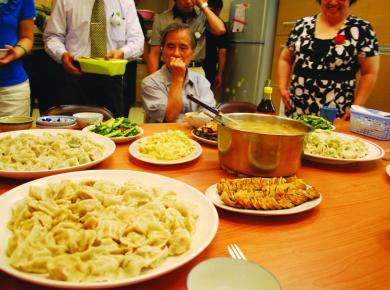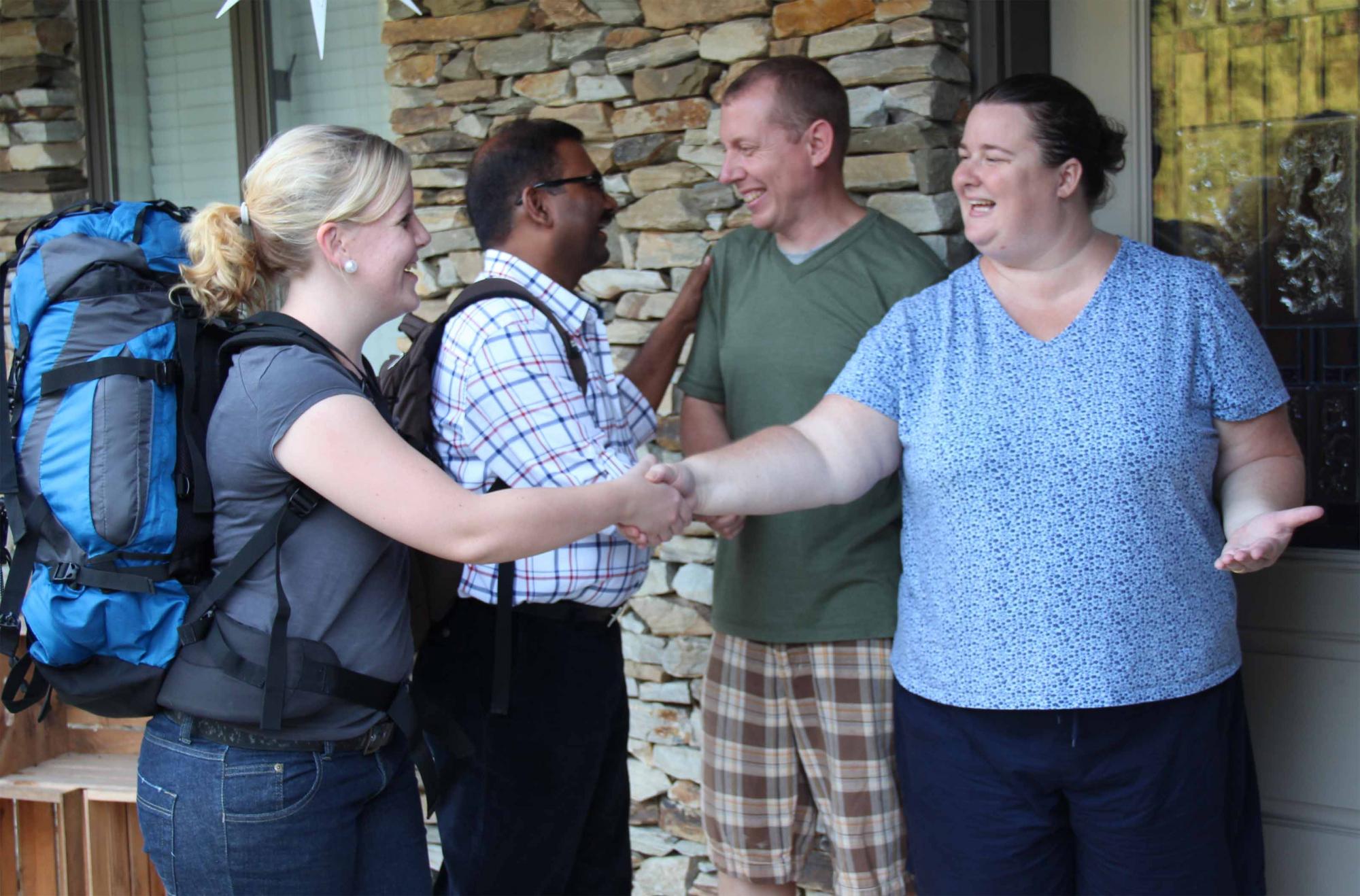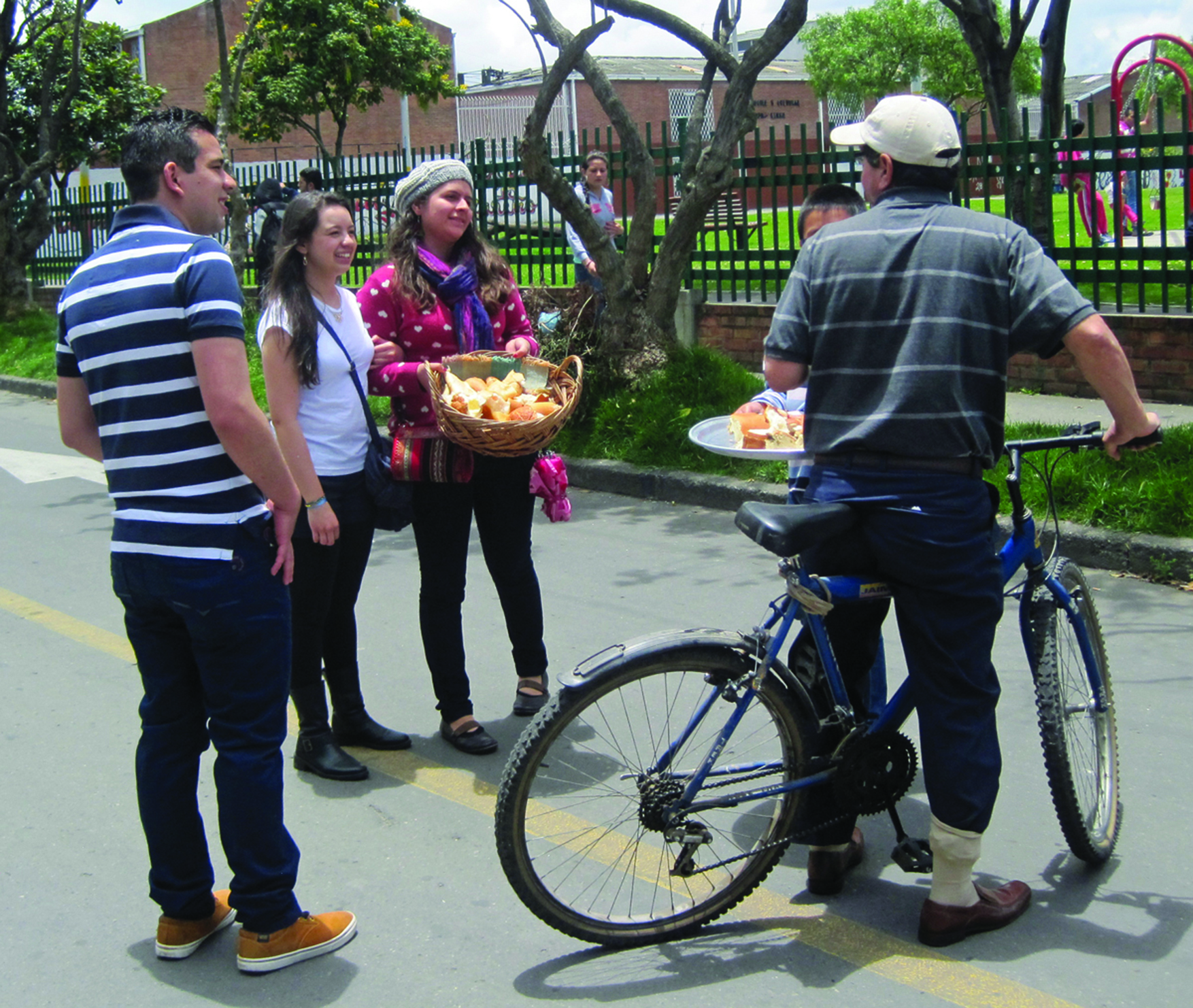Posted: May 19, 2016
Piring bukan beling: Hospitality not hostility
Indonesians are famous for their hospitality. If you visit their home, they will serve you food and drink. In the villages, the housewife will cook the family’s only chicken to serve a guest.
I learned hospitality from my parents. I grew up in a big family with nine children in a small home with only three small bedrooms. We were not rich, but our family helped our cousins and our friends who needed housing and food. They often stayed with us so they could continue their studies. Our small home was like an oasis for everyone who needed love and care. My father and mother became parents to them all.
My mother and father taught us to love, care, understand, help and support each other. We shared what we had with others, not just thinking about ourselves. My parents also taught us to respect everyone regardless of their status, faith or tribe. For example, my cousin is Buddhist, my brother’s friend (of Arab descent) is Muslim, my sister’s friends included a Catholic Christian from Java and a Hindu believer from Bali – and all were warmly welcomed into our home. My parent also taught us about equality, to treat and respect everyone as human beings. The woman who served as our maid became a part of our family; she sat and ate with us in the same table at the same time.
After a time away (I went to the USA 1995–2001), I came back to Indonesia where the situation had become completely different. I was surprised to see Muslim women wearing long dresses, blouses with long sleeves and hijab (head coverings); in the old days, they weren’t recognizably different by their clothing. Some clerics were teaching it is haram (forbidden) for Muslim to greet Christians with “Merry Christmas” and for a Muslim to visit Christian worship. I was so sad; I remembered in the old days when we really had a good relationship and respected each other. We sent food and visited our Muslim neighbours for Idul Fitri (Eid al-Fitr, the end of Ramadan) and our Muslim neighbours visited us at Christmas. The tradition to visit and celebrate, to spend our respective joyous time together, is gone. I was sad to learn that in Maluku and Poso, Sulawesi, where Christians and Muslims used to live peacefully side by side, they have come into conflict and even killed each other.
Violent conflicts have been causing displaced people and refugees in many areas of the world. We as the Anabaptist communion worldwide would like to think about what it means to welcome the stranger, especially when those strangers hold a different religious belief than us. What should we do?
Let’s learn and be inspired from 3 stories.
Elijah and a widow from Zarephath (1 King 17:8–16)
Elijah is fleeing from Jezebel who is trying to kill him. The brook has dried up but God promised to supply Elijah’s need. The word of the Lord comes to him, saying, “Arise, go to Zarephath, which belongs to Sidon, and stay there; behold, I have commanded a widow there to provide for you” (NASB).
Elijah does not move until there is communion with God. He waits until he has direction from the Lord: “Go to Zarephath.” The Hebrew word halak, used here for “go” it carries the idea of travelling or journeying through hardships and danger. And the first command “arise” means to wake up.
It is interesting that Elijah goes to Zarephath which belongs to the land of Jezebel who wants to kill Elijah. God provides for Elijah through a Gentile woman, a woman outside the circle of God’s own people. She is a poor, destitute, depressed widow facing starvation.
It is interesting too, that widow is willing to give the one and the only one meal she has. The widow is willing to share her resources/food in her scarcity. She opens her door for Elijah to stay at her house. She gets to know God from Elijah.
Hizbullah & Mennonites (Yogyakarta)
The 2006 Yogyakarta earthquake (also known as the Bantul earthquake) occurred at 05:54 local time on 27 May 2006 with a magnitude of 6.3 on the Richter scale and a maximum intensity of IX (Destructive) on the Medvedev–Sponheuer–Karnik scale. The shock occurred on the southern coast of Java near the Indonesian city of Yogyakarta, and caused more than 5,700 deaths and 37,000 injuries, and financial losses of 29.1 trillion Indonesian Rupiah (US$3.1 billion).
The earthquake toppled down all the building and houses. Almost all the homes of those from our outpost Mennonite church in Pundong (GKMI Yogyakarta Cabang Pundong) were ruined by the earthquake.
What was the Mennonite church do? Amid our condition, we built tents, a community kitchen, community bathrooms, a health clinic. With assistance from Mennonite Central Committee and other NGOs, we helped everyone in need, regardless of their faith. We shared electricity with the community.
Volunteers from different backgrounds and faiths worked together with us. Hizbullah soldiers (Sunan Bonang division) guarded our logistics truck (because of the scarcity, there was a lot of robbery). The Mennonites and Hizbullah’s carpenter worked together to build houses. After all the houses were done, then we built the church and the community building.
Outpouring of provision
Mount Merapi in Central Java, Indonesia, began an increasingly violent series of eruptions that continued from late October 2010 into November. Seismic activity around the volcano increased from mid-September onwards, culminating in repeated outbursts of lava and ashes. Large eruption columns formed, causing numerous pyroclastic flows down the heavily populated slopes of the volcano. Authorities said Merapi’s eruption was the largest since the 1870s.
More than 350,000 people were evacuated from the affected area. However, many remained behind or returned to their homes while the eruptions were continuing. During the eruptions, 353 people were killed. The ash plumes from the volcano also caused major disruption to aviation across Java. On 3 December 2010, the official alert status was reduced to level 3 from level 4, as the eruptive activity had subsided.
The church also suffered when the Mount Merapi erupted. More than 350,000 people were evacuated to the stadium, school, church, village yard. They were hungry.
What should we Mennonites do? We are a small congregation (100–150 members); most are poor. But we wanted to do something. We asked God’s blessing; with Rp 3,000,000 (approximately US$300) that we collected, we made a community kitchen in the church. We cooked and sent 1,500 boxes of food every day to the relief location.
God is great! God sent people – some who we didn’t know at all – to help and support. Like the widow at Zarephath, we had supplies to the end. When we all were too tired, God sent people to help us, so we had strength to cook again. We did this ministry until done.
Food, not fragments
Piring Bukan Beling. This is a Javanese illustration about relationships. (Piring = plate, beling = a sharp broken glass.) Beling is like a bottle with its bottom broken off to hurt another person in a drunken fight. It is also the word for the sharp fragments embedded in a high wall surrounding a house to harm a robber who tries to climb the wall. So piring bukan beling is like this: it is useless to build the high wall; you are still not safe because it makes a boundary between you and your neighbour. Don’t be hostile to the others or hurt them. It will be better if you show hospitality; give piring – a plate with good food to your neighbour. Then your enemy may become your friend. You can work together and help each other. Offer hospitality, not hostility.
The events of life are tools and agents of God. The same events that test us often become the means by which God is able to use us in ministry to others. In other words, our trials often become vehicles for ministry, opportunities to manifest the life of Jesus Christ and the power and love of God. In the same way that Elijah’s request became a means of meeting needs in the lives of the widow and her son, our inadequacies may became the means of meeting another’s need.
Through the disasters that happen to us, God reminds us again that we are not here for ourselves, even in our pain and need. God cares for us, but we are not alone. God cares for others too, and often ministers to the people around us through the character changes God is bringing about via our own suffering or want.
Hospitality means that even in our pain and scarcity, we are to think of others and help them. This goes totally against the self-centred society focused on what is best for me regardless of what it could mean to others.
Hospitality means opening the door and being willing to share what we have, even when that is the last and the only resource.
Never fix your eyes on the conditions. Look beyond the instruments to the real source of supply – the Lord. Never judge or measure God’s supply by what we can see. God is the One who does exceeding abundantly beyond all we can ask or think – like the provision the Mennonite church experienced when Mount Merapi erupted.
We need to walk by faith not by sight. Don’t count only money but count God’s blessings. Do God’s work with love and compassion. Start from what we have, don’t wait until we think that’s enough. We know that by sharing our blessings with others, our giving will not be our lack.
Hospitality is opening the door (welcoming), being open so the other will get to know us and know our God. We must open the door even for the enemy and serve the enemy with food and kindness. Hospitality also means to enter the open door, to enter relationship with another, being humble to receive love from the others, even from someone that we consider weaker. We must open our eyes, choose to live side-by-side and learn to understand each other.
Hospitality means to treat the others as equals, regardless of faith, people, tribe, organization or church. Don’t be prejudiced. Treat others as friends/family. Respect the others. Remember that we all belong to the world community. We are God’s creation.
Hospitality means that we are open to God’s way. We need to ask God for the compassion and love to reach out to others with God’s power and love.
“When a stranger sojourns with you in your land, you shall not do him wrong. You shall treat the stranger who sojourns with you as the native among you, and you shall love him as yourself, for you were strangers in the land of Egypt: I am the Lord your God” (Leviticus 19:33–34, ESV).
Janti Diredja Widjaja is a pastor with one of the Mennonite conferences, Gereja Kristen Muria Indonesia (GKMI) in Yogyakarta, Indonesia. She has served on the MWC Faith and Life Commission (2009–2015) and is currently studying psychology at Gajah Mada University in Yogyakarta.
This article first appeared in Courier/Correo/Courrier April 2016.
Families in Pennsylvania opened their homes to guests from around the world during Mennonite World Conference’s Assembly 16 in July 2015. Photo by Liesa Unger.
Colombian Mennonite churches share the love of Christ though Pan Y Paz on Peace Sunday by giving out bread to strangers on the street. Photo courtesy of Iglesia Cristiana Menonita de Ciudad Berna, Bogotá, Colombia.
Click on the photos to see the high resolution version.



Comments: